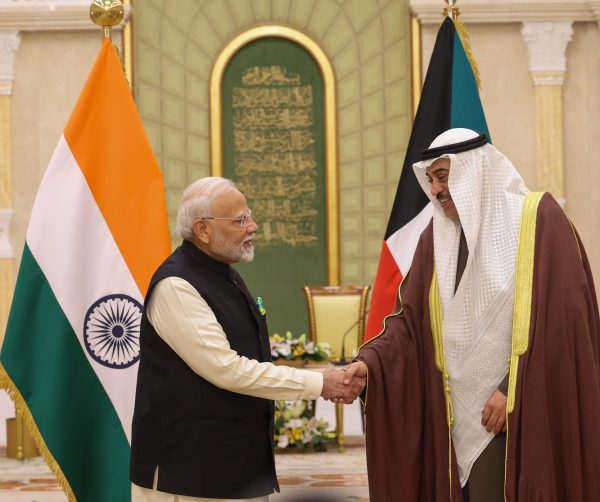The visit of Indian Prime Minister Narendra Modi to Kuwait from December 21-22 has been considered a major political breakthrough in bilateral relations. It was first visit to this oil-rich country by an Indian prime minster in 43 years. In a significant highlight of this visit, bilateral ties have been elevated to a “strategic partnership.”
India-Kuwait bilateral cooperation has for years been concentrated in three important domains: crude oil trade, remittances from Kuwait to India, and economic engagements. Bilateral trade touched $10.75 billion during 2023-24. Kuwait is the sixth largest crude oil importer and the fourth largest petroleum gas provider to India; it accounts for 3.5 percent of India’s total energy requirements. These statistics underscore the pivotal role Kuwait continues to play in India’s economic and energy security calculus.
Modi’s visit reflected the current Indian government’s politico-diplomatic focus on the Gulf region, particularly since mid-2014. This visit, indeed, marked a pivotal point in New Delhi’s regional outreach efforts. The strategic foreign policy overtures made by India are in alignment with the ongoing geopolitical recalibration that is taking place within most of the Gulf Cooperation Council (GCC) states, which are increasingly shifting their focus toward establishing robust partnerships with Asian economies, including India.
The growing political ties with Kuwait exemplify the evolving paradigm of strengthened India-Gulf relations, which have begun to move beyond the oil trade to make relations more comprehensive. The timing of this diplomatic initiative also merits scholarly attention, as GCC states, Kuwait among them, are pursuing a strategic expansion of their global partne
Continue Reading on The Diplomat
This preview shows approximately 15% of the article. Read the full story on the publisher's website to support quality journalism.
